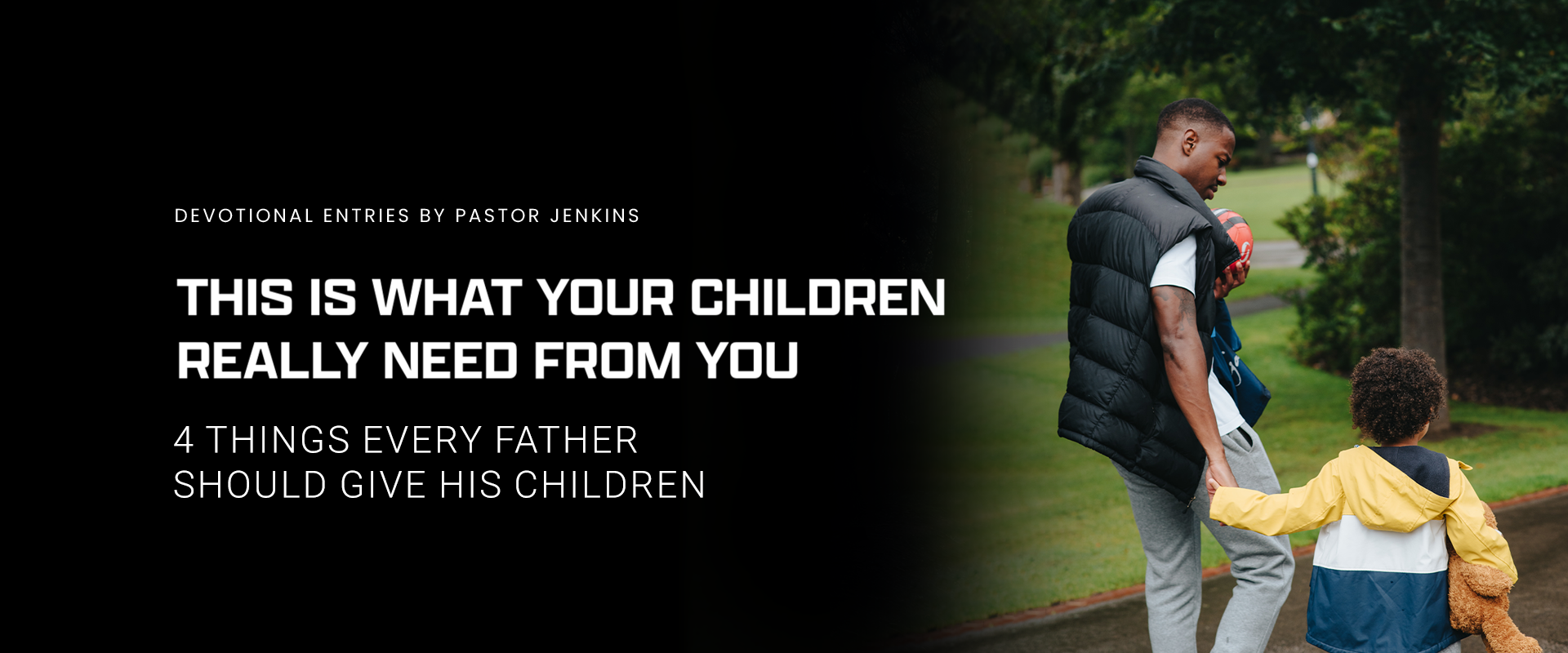
Fathers, we have one of the greatest responsibilities in the world—nurturing those entrusted to us. But how do we do that?
Let’s look at one of the most popular parables in scripture: the Parable of the Prodigal Son.
Parable of the Prodigal Son
During His ministry, Jesus was well known for upsetting a majority of religious leaders. Most of the time, it was simply due to their disapproval of Jesus talking to and with sinners. (Luke 15:1) Sadly, when we consider the church body today, not much has changed.
In Luke, we grasp a parable of a certain man and his younger son. This son has had enough of his life at home (and thinking he knew what was best) asked his father for his inheritance—while his father was still alive. (You see, it was customary for children to receive it after a parent had died.)
According to scripture, the son went out with money in hand and wasted it on loose living. He lived his life how he wanted and soon found himself with no place to go, no friends, and eating slop with the pigs. This directional life change soon caused him to consider if this was the life he actually wanted.
After his reality check, the son realizes that even his father’s servants are living better than him, so he makes a plan to go home and ask his father for a job.
Continuing in the parable, Luke 15:20-24 in the New King James Version says,
“And he arose and came to his father. But when he was still a great way off, his father saw him and had compassion, and ran and fell on his neck and kissed him. And the son said to him, ‘Father, I have sinned against heaven and in your sight, and am no longer worthy to be called your son.’ But the father said to his servants, ‘Bring out the best robe and put it on him, and put a ring on his hand and sandals on his feet. And bring the fatted calf here and kill it, and let us eat and be merry; for this my son was dead and is alive again; he was lost and is found.’ And they began to be merry.”
This small portion of scripture leaves four guidelines for how we should extend mercy to our children. Together, let’s explore how we can be godly fathers.
4 Things Every Father Should Give His Children
Covering (vs. 22)
In verse 22, we see that the father gave his son his best robe. This generous act represents the father’s covering.
Symbolically speaking, it was the robe that covered the son’s past mistakes. You see, when he came home, he wasn’t in his finest threads. He was dirty, smelly, and instead of leaving him in his exposed condition, the father threw his best robe on him. Any good father, when their sons and daughters come to him, covers them.
I give God all the praise that the very act the father did for the prodigal son is the same thing the Father does for us! We have all sinned and fallen short of the glory of God. Thank you, Lord, that you never exposed us in our weakness and sin.
Fathers, be approachable to your children when they make a mistake. Compassionately cover them.
Identity (vs. 22)
In Biblical times, when someone would give another a signet ring, it represented that they were a part of the family. They were given a new identity.
When the father gave his son his ring, he was saying that he wasn’t afraid to acknowledge him as his child. Unfortunately, there are many parents who are ashamed of their children. A good father is willing to give his child recognition in his family.
When my youngest daughter, Natalie, graduated from Drexel University, I couldn’t hold my excitement in. In fact, when they called her name and she walked across the stage for her diploma, I shouted, “That’s my daughter!”
One of the biggest challenges in our communities is when children grow up not knowing who their daddy is. For those who are trying to escape the child born with their DNA, it’s not too late; give your ring to them. They carry the generations of the past and those to come.
Fathers, give your child a name. Give them identity.
Direction (vs. 22)
When the father saw his son, he gave him sandals for his feet. Generally, we wear shoes if we are going somewhere, or when we are headed in a certain direction.
It’s very important that parents (especially fathers) give a sense of direction to their children. As we make decisions, we must be careful that we don’t tell our child what we want to do. It is far more important and impactful when we tell them how God has influenced our hearts.
You have lived your life and made mistakes. It is your responsibility to help save your children from the detrimental paths you experienced when you were younger. Now, they may not listen or follow your wisdom, but it is your job to share your testimony with them.
The generation of today can learn in a matter of a few reels, snaps, or Google searches. What took us days to research takes them seconds to find. However, any wise parent knows the difference between acquiring knowledge and living out of wisdom.
Fathers, it is important for you to teach your children. Give them direction.
Investments (vs. 23)
Upon the son’s return, the father commanded that the fattened calf be prepared. This calf is symbolic of a life of provision and purpose. It shows that the owners have taken great care of their investment and has been marked as special.
When the father called for the fattened calf, he deemed his son’s coming home a celebration! He has taken what he has invested in and sacrificed it for this occasion. A good father takes the best of what he has and gives it to his children.
Unfortunately, there are many parents living off of their children instead of the other way around. As a father, I acknowledge that I am not living my life for me—I live in such a way that looks out for my children. I don’t want my kids to struggle like I did; I want them to win!
Fathers, consider your legacy. Invest in your children.
Dads, are you covering your children?
Have you given them an identity?
Are you guiding them in purpose and direction?
Are you investing in their future?
For more on being godly fathers, check out Pastor John K. Jenkins, Sr.’s sermon, 4 Things Every Father Should Give His Children.


